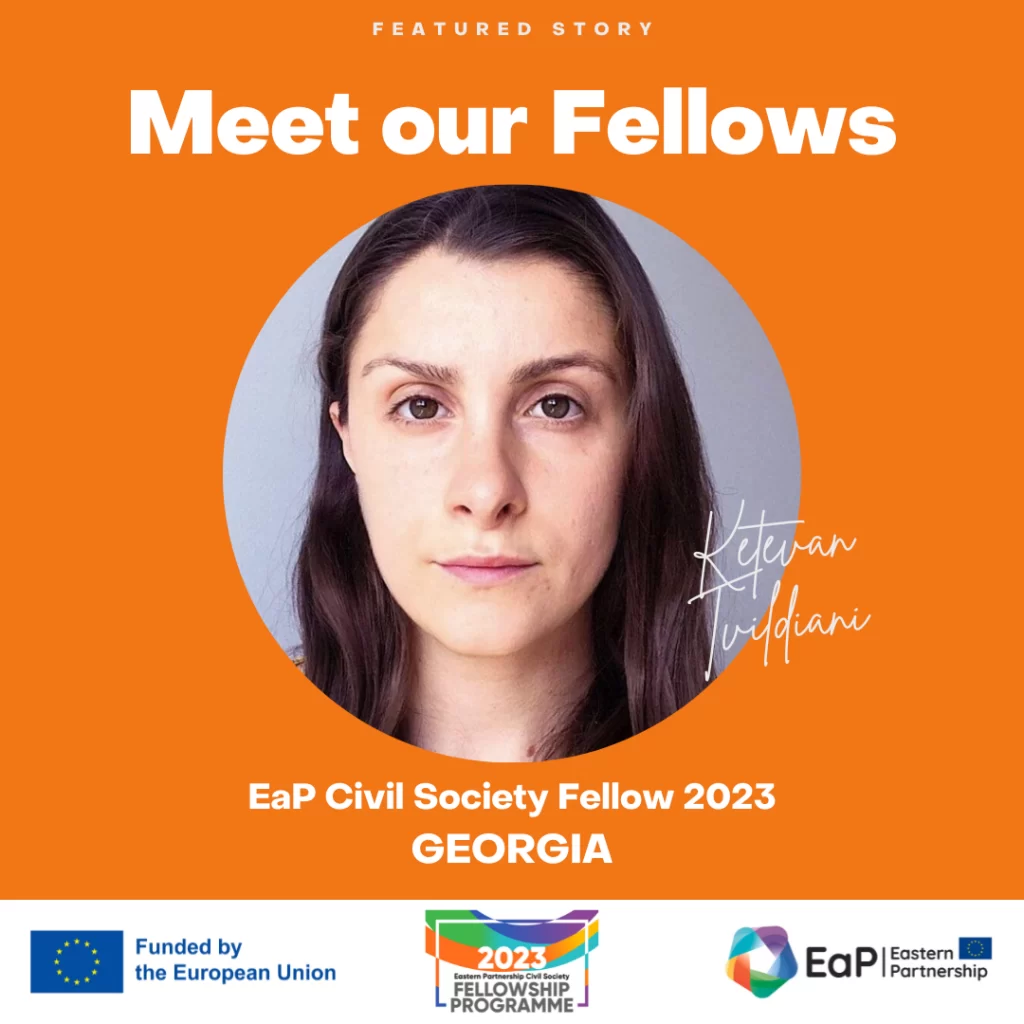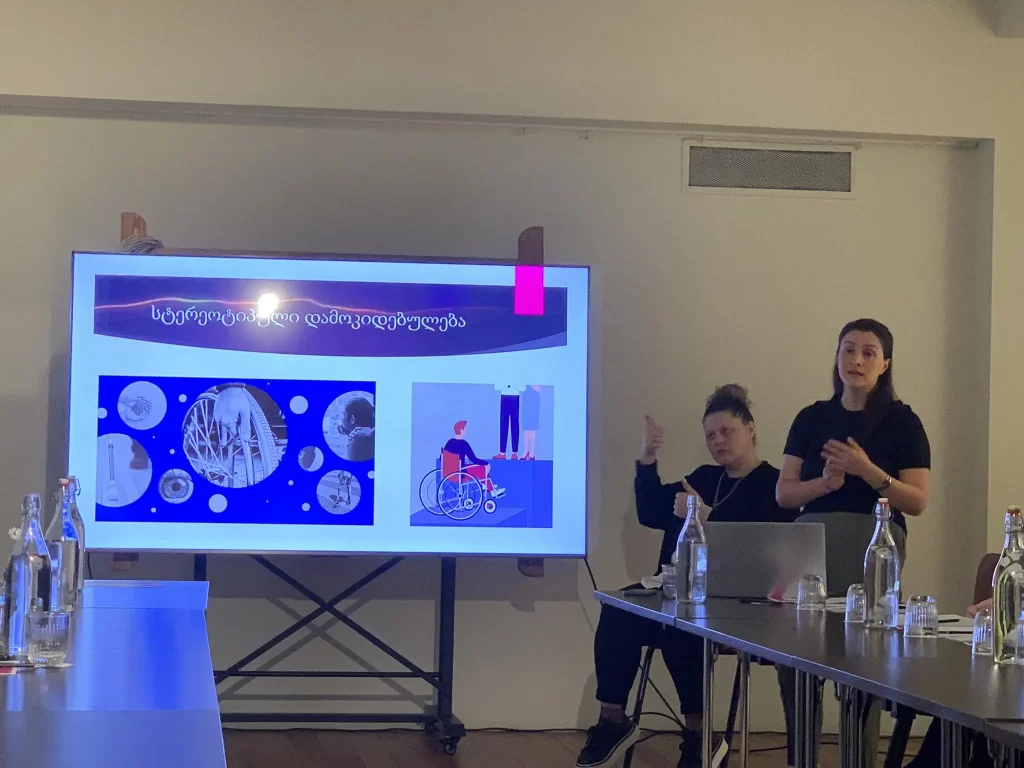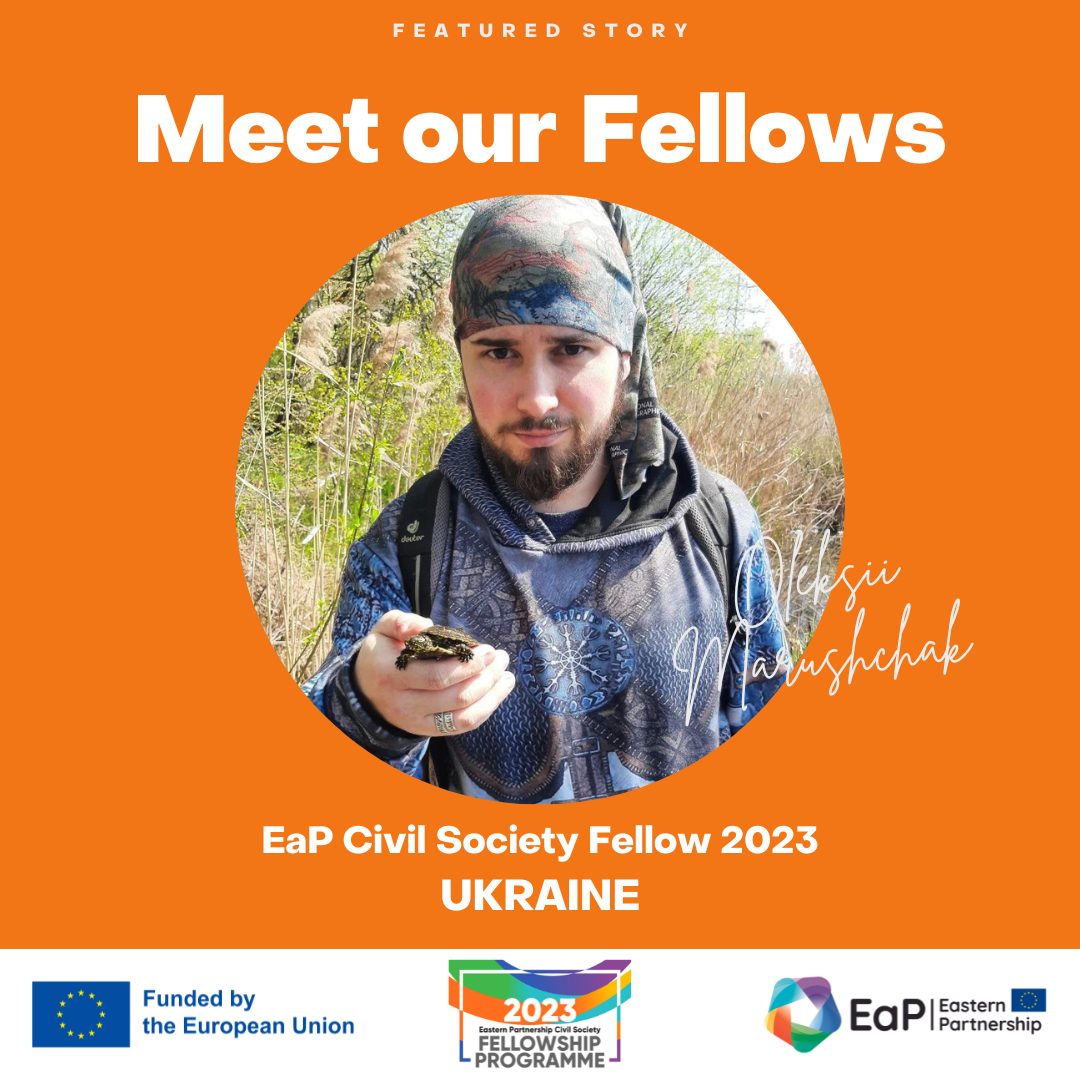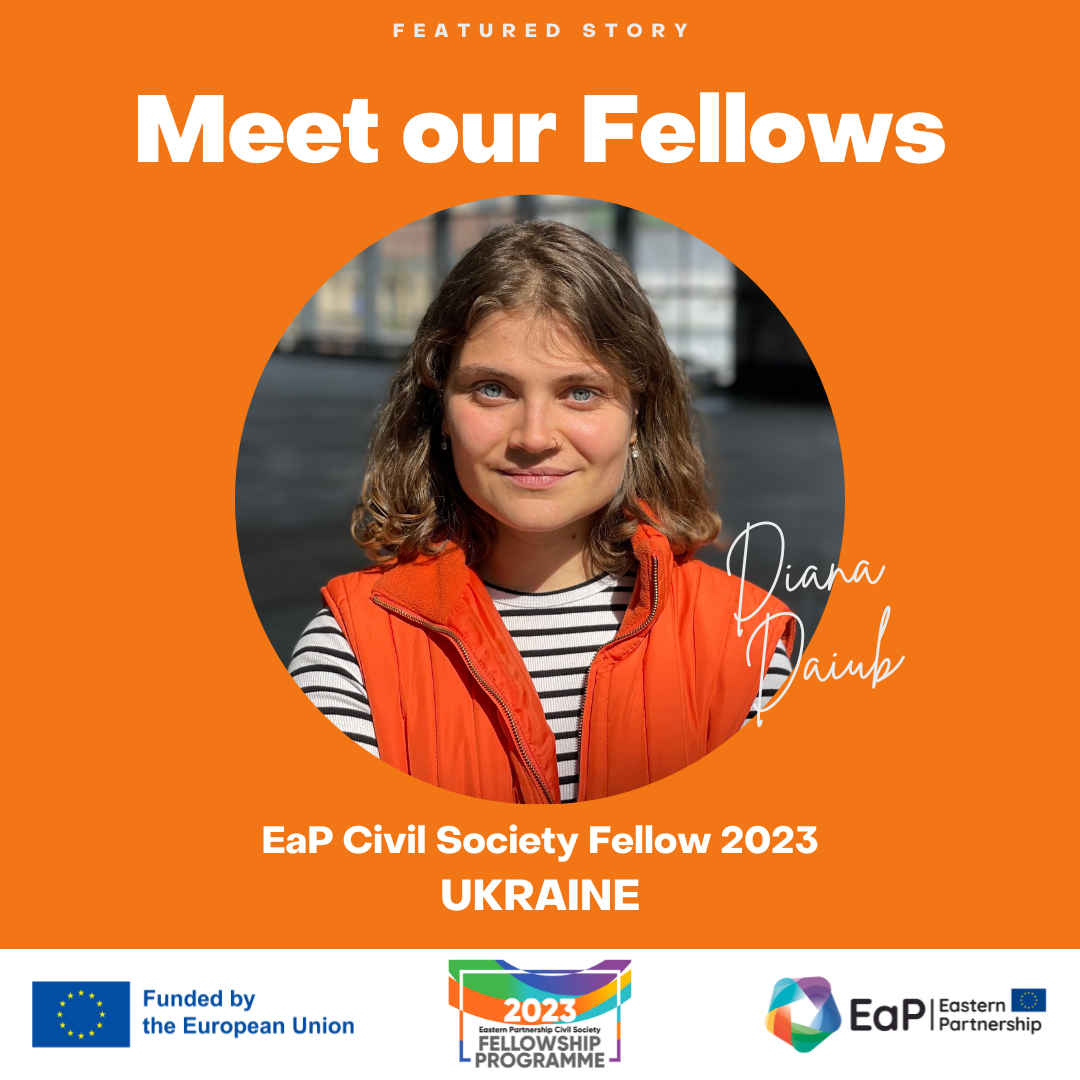Ketevan Tvildiani’s first degree was in English language and literature, but her interest in understanding the concept of social justice and the everyday life of people in her community drove her to take a Masters course at Batumi University in Sociology. The Masters course developed her skills for undertaking social research and included a sojourn at the University of Salzburg, which was Ketevan’s first experience with the Erasmus+ programme and provided her with insights not only into lifestyles and values of the EU, but helped her to ‘think globally’.
“Previously I had grown up in the relatively small city of Batumi, and had fairly blinkered small city attitudes. Being in Salzburg I enjoyed a great feeling of freedom and openness. The fact that the EU has no internal borders is conceptually so powerful”.
After graduation Ketevan was delighted to secure a position with the British Council in Georgia. Her work with the Council enabled Ketevan to see how activities relating to art and culture can be effectively used to support social development. In particular, a project which she was involved in in 2018, ‘Unlimited – Making the Right Moves’, provided an eye-opening experience of how communities in UK approach the practicalities of supporting inclusivity. The project was a platform for demonstrating how young people in Georgia with disability could engage with dance and all aspects of dance performance, alongside able-bodied youth. The project showed that with the right kind of planning, suitable infrastructure, and an open-minded attitude, the world of dance could be wholly inclusive. The experience was highly motivation for Ketevan and ultimately led her to designing her fellowship project.
The “Fostering Engagement of Youth with Disabilities in Arts and Culture” fellowship project, implemented during 2023 and early 2024, represented a critical step towards advancing the rights and opportunities of youth with disabilities in Georgia’s cultural landscape. Ketevan achieved this primarily through participatory research and subsequent publication of a report examining the challenges for inclusive policies and practices in Georgia. Alongside the report, Ketevan undertook a range of communication activities, such as creating four ‘motivational’ videos and facilitating formal workshops and a roundtable to advocate the recommendations of the report in order to foster a more equitable and enriching cultural environment for all individuals, regardless of ability.
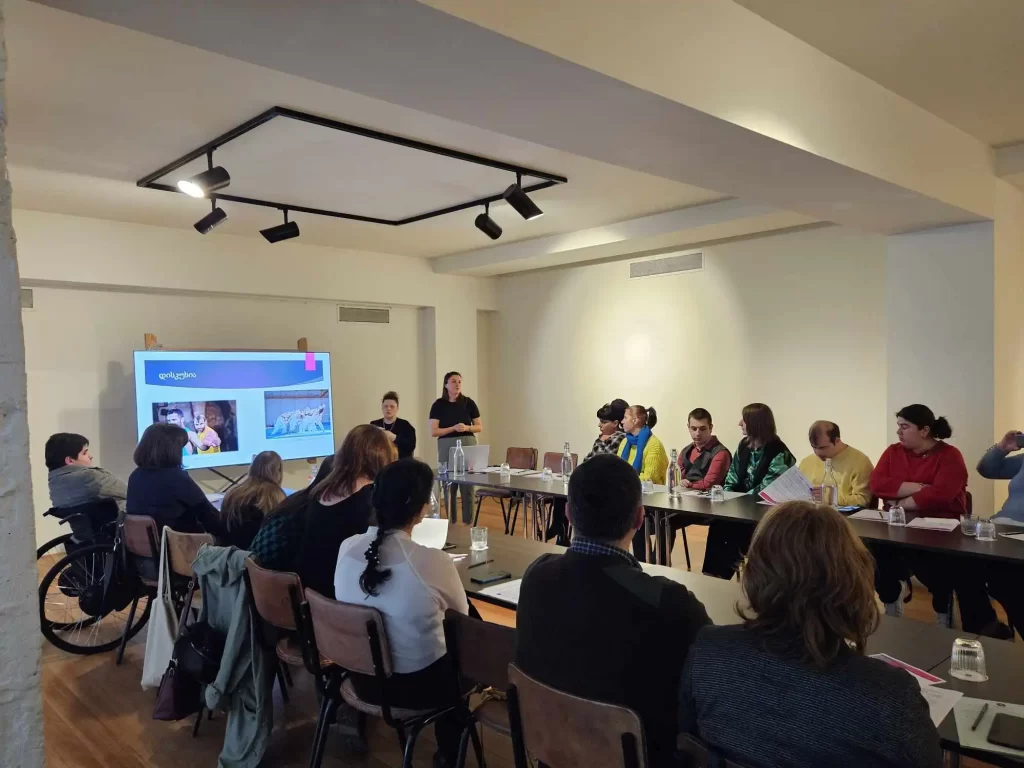
The roundtable event, which was one of Ketevan’s final activities, is remembered by the Fellow as being the highlight of the project. “For the first time we had the youth with disabilities and the representatives from three different sectors sitting round the table to discuss how to improve inclusivity. There were representatives of the State, representatives from cultural organisations and institutions, and representatives from youth-focused civil society organisations.”
As a result of the research findings, expert experience from outside UK, and the roundtable discussion, the project elicited a ground-breaking proposal from a representative of the Georgian Parliament to collaborate on a joint project aimed at enhancing accessibility within the arts and culture sector signifying a paradigm shift in governmental attitudes and commitments towards disability rights. Furthermore, a high-level participant of the project activities was moved to take action to improve accessibility to cultural events and venues. He commented that “the workshop presentation included information about ISO standards and the accessibility of websites in the UK, which I want to share with decision-makers at the office of the President of Georgia, so that our websites are accessible in the future”.
Download the Study Report:
“Fostering Engagement of Youth with Disabilities in Arts and Culture” in ENGLISH
Download the Study Report:
“Fostering Engagement of Youth with Disabilities in Arts and Culture” in GEORGIAN
Ketevan’s fellowship has produced the first research findings in Georgia into inclusivity in the arts/culture sector and policy recommendations to ensure protection of rights of citizens with disability to participate in cultural endeavours, but she knows that there is much more to be done. As a priority next step Ketevan intends to support the foundation of some kind of permanent body at national level to promote inclusivity of the disabled into the arts and culture, with balanced representation from CSOs, cultural organisations and the public sector. The first work of such a body might be, as Ketevan suggests as an example, “to ensure principles of ‘universal design’ are regulated for, so that any new cultural venues are built with accessibility as an obligatory concern”. Ketevan hopes that she can pursue these next steps through the work of the Development and Engagement Platform for which she currently works.
Find other Featured Stories of our EaP Civil Society Fellows here.
Background information:
Ketevan Tvildiani is one of the Fellows of the Eastern Partnership Civil Society Fellowship programme funded by the European Union. Its main objective is to support civil society activists or civically minded people from Armenia, Azerbaijan, Belarus, Georgia, Moldova and Ukraine who demonstrate a deep commitment to leading positive social change in their communities. The Eastern Partnership Civil Society Fellowship programme has been running since 2017 and today the Fellowship alumni has 200 Fellows from across the six countries of the Eastern Partnership. Details about the Fellows and their Fellowship projects can be found here.



